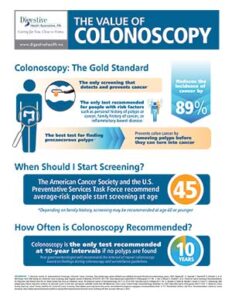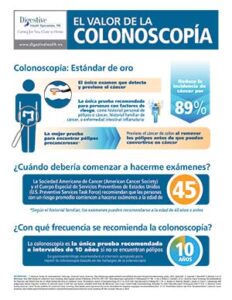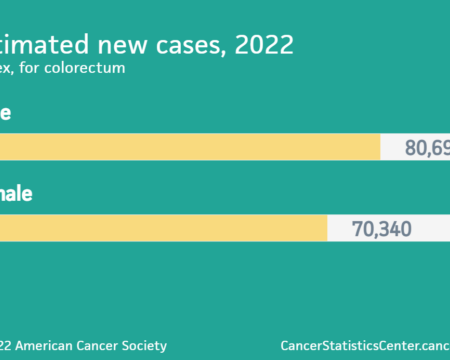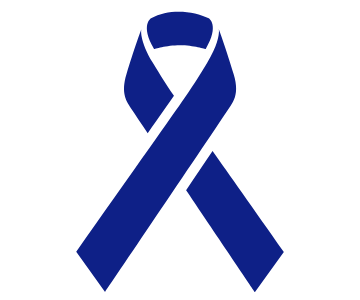
Colorectal Cancer: Top 3 Things to Know
Colorectal cancer is now the second-leading cause of cancer deaths in the United States among men and women combined, accounting for over 52,000 lives lost per year. It is expected that more than 153,000 more people will be diagnosed with colon cancer in 2023. And although there is an 89% survival rate when this cancer is found and treated early (localized stage), 1 in 3 eligible Americans are not up to date on their screenings. Also taking into consideration that colorectal cancer screenings have not returned to pre-pandemic levels – currently at 10-18% less than before the pandemic – and that young on-set colorectal cancer is on the rise, we thought it imperative to answer commonly asked questions about this disease and what you can do to prevent or detect colorectal cancer.
What are the risk factors for colorectal cancer?
In all honestly, anyone with a colon has the risk of developing colon cancer and should get screened for colorectal cancer. Still, there are several risk factors that might increase a person’s chance of developing colorectal polyps or colorectal cancer.
- Family history of colorectal cancer in first-degree relatives (mother, father, son daughter, brother, and/or sister)
- Personal history of colorectal cancer or advanced polyps
- Personal history of inflammatory bowel disease (ulcerative colitis or Crohn’s disease)
- A known family history of familial adenomatous polyposis or Lynch syndrome.
Another strong risk factor is a person’s racial and ethnic background.
- African Americans have the highest colorectal cancer incidence and mortality rates of all racial groups in the US. It is estimated that Black Americans are 20% more likely to be diagnosed with colorectal cancer, and 40% more likely to die from the disease than other groups.
- Jews of Eastern European descent (Ashkenazi Jews) have one of the highest colorectal cancer risks of any ethnic group in the world.
- Colorectal cancer is expected to account for 11% of cancer deaths among Hispanic men and 9% of cancer deaths for Hispanic women.
What is young On-Set colorectal cancer?
Young On-Set colorectal cancer is a cancer diagnosis for those aged 20-49; this number is rising. It is estimated that by 2030 colorectal cancer will be the number one cancer killer for this age group. Currently, 10% of colon cancer diagnoses are in patients under 50 years old.
This increase is why in 2021 the United States Preventive Services Task Force (USPSTF) lowered the age to start colorectal cancer screenings from 50 to 45. The hope is that this new guideline increases access to colorectal cancer screenings; more than 20 million additional people will be able to get a preventive colorectal cancer screening. At the time of this article, the majority of health insurance, including Medicare, have also made adjustments to their policies and cover colon cancer screenings for average-risk patients at 45 years old.
What are the screening options for colorectal cancer?
The ONLY screening test that detects and prevents colorectal cancer is a colonoscopy; this is why it is considered the gold standard by gastroenterologists. A colonoscopy is also the only test recommended for people with risk factors such as a personal history of polyps or colorectal cancer, a family history of colorectal cancer, or inflammatory bowel disease. Additionally, a colonoscopy is the best test for finding precancerous polyps. Studies have shown that over time these types of polyps can grow into cancer. A colonoscopy uses a video camera scope with a light to visualize the tissue inside of the colon and if a polyp is present, it can be removed during the exam before they grow large enough to turn into a cancerous tumor. And a colonoscopy is safe, with an overall complication rate of 1.6% and serious complications being <0.3%.
Another screening modality that can be suggested to patients, in specific cases, are stool-based tests, like an FOBT, FIT, or a Cologuard test. These tests look at the stool (feces) for possible signs of colorectal cancer or polyps. These tests are typically done at home, so many people find them easier than tests like a colonoscopy. But these tests need to be done more often. And if the result from one of these stool tests is positive (abnormal), you will still need a colonoscopy to see if you have cancer.
Colorectal cancer is one of the few cancers that can be detected and prevented with timely screenings. And March, being Colon Cancer Awareness Month, is the perfect moment to speak to your doctor or gastroenterologist and make sure you are up-to-date on your colorectal screening exam.
To learn more about colorectal cancer, colonoscopies, and healthcare disparities watch the videos linked below:
The Value of Colonoscopy: The Gold Standard in Colorectal Cancer Screening from DHPA on Vimeo.
Colorectal Cancer: Am I at Risk? from DHPA on Vimeo.
You can also download the following infographics:


– Published March 1, 2023

He works at our Tanglewood and Winston-Salem clinics.
Digestive Health Specialists, PA is here to help if you, or someone you know, would like more information, or if you are experiencing any digestive health symptoms and would like further evaluation. Feel free to give us a call at 336-768-6211 or fill out the form below.









